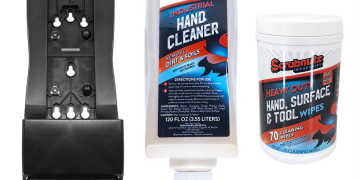Hyaluronic acid has become one of the most celebrated ingredients in modern skincare, praised for its ability to deeply hydrate and improve the skin’s texture and elasticity. Found naturally in the body, this molecule plays a critical role in maintaining moisture and supporting the skin’s barrier. As environmental factors and aging take their toll, integrating hyaluronic acid into your skincare routine can transform your skin’s health and appearance. This article delves into the benefits of hyaluronic acid, its various applications, and how to maximize its effectiveness.
Understanding Hyaluronic Acid
Hyaluronic acid (HA) is a glycosaminoglycan, a type of molecule naturally present in the skin, connective tissues, and eyes. Its primary function is to retain water, keeping tissues hydrated and plump. Remarkably, hyaluronic acid can hold up to 1,000 times its weight in water, making it a powerhouse ingredient for hydration.
As we age, the body’s natural production of hyaluronic acid diminishes, leading to drier, thinner, and less elastic skin. Environmental factors such as UV radiation and pollution can further deplete the skin’s HA levels. This is where topical hyaluronic acid steps in, replenishing moisture and restoring vitality.
Key Benefits of Hyaluronic Acid for Skin
1. Intense Hydration
Hyaluronic acid’s ability to attract and retain moisture is unparalleled. When applied topically, it forms a protective layer on the skin’s surface, ensuring long-lasting hydration. This is particularly beneficial for individuals with dry or dehydrated skin, as it helps to restore moisture balance and improve overall skin texture.
2. Enhanced Skin Plumpness
By replenishing hydration, hyaluronic acid helps to plump up the skin, reducing the appearance of fine lines and wrinkles. This makes it a favorite ingredient in anti-aging products, as it provides an immediate smoothing effect while supporting long-term skin health.
3. Strengthened Skin Barrier
A healthy skin barrier is essential for preventing moisture loss and protecting against environmental aggressors. Hyaluronic acid fortifies this barrier, making the skin more resilient to irritants and reducing redness or sensitivity.
4. Improved Skin Elasticity
With consistent use, hyaluronic acid enhances the skin’s elasticity, giving it a firmer and more youthful appearance. It also supports collagen production by creating an optimal environment for skin repair and regeneration.
5. Compatibility with All Skin Types
Hyaluronic acid is non-comedogenic and lightweight, making it suitable for all skin types, including oily and acne-prone skin. Its soothing properties also make it ideal for sensitive or reactive skin.
Different Forms of Hyaluronic Acid in Skincare
Hyaluronic acid comes in various molecular weights, each offering unique benefits:
1. High Molecular Weight
- Forms a film on the skin’s surface to prevent water loss.
- Provides immediate hydration and a smoothing effect.
2. Low Molecular Weight
- Penetrates deeper into the skin to hydrate and repair from within.
- Enhances skin elasticity and reduces fine lines over time.
3. Hydrolyzed Hyaluronic Acid
- A broken-down form of HA that penetrates the deepest layers of the skin.
- Ideal for addressing severe dehydration and improving overall skin texture.
Many advanced formulations combine multiple weights of hyaluronic acid to deliver both surface-level hydration and deeper nourishment.
How to Incorporate Hyaluronic Acid Into Your Routine
Hyaluronic acid’s versatility allows it to fit seamlessly into any skincare regimen. Follow these steps for optimal results:
1. Start with Clean Skin
Apply hyaluronic acid immediately after cleansing and toning. This ensures that the product can penetrate effectively without interference from dirt or oils.
2. Use on Damp Skin
For best results, apply hyaluronic acid to slightly damp skin. This helps it bind to water and maximize hydration. Mist your face with a hydrating toner or water before application if necessary.
3. Follow with Moisturizer
Seal in the benefits of hyaluronic acid with a moisturizer. This step prevents water evaporation and ensures prolonged hydration throughout the day.
4. Layer with Complementary Ingredients
Hyaluronic acid works well with other active ingredients, such as:
- Vitamin C: Enhances brightening effects and antioxidant protection.
- Niacinamide: Boosts hydration and strengthens the skin barrier.
- Peptides: Supports collagen production and skin repair.
5. Use Twice Daily
Incorporate hyaluronic acid into your morning and evening routines for continuous hydration and skin health.
Common Myths About Hyaluronic Acid
Despite its popularity, there are several misconceptions about hyaluronic acid. Let’s debunk a few:
1. “Hyaluronic acid dries out the skin.”
When used correctly, hyaluronic acid hydrates the skin. However, in extremely dry climates, it can draw moisture from the deeper layers of the skin if not sealed with a moisturizer. Always follow up with a hydrating product to lock in moisture.
2. “Hyaluronic acid is only for dry skin.”
Hyaluronic acid benefits all skin types, including oily and acne-prone skin. Its lightweight texture ensures hydration without clogging pores.
3. “Higher concentrations are always better.”
While higher concentrations may seem appealing, excessively high percentages of hyaluronic acid can feel sticky or cause irritation. Products with 1-2% HA are effective and well-tolerated.
Supporting Hyaluronic Acid with Lifestyle Choices
To enhance the effects of hyaluronic acid, pair it with healthy lifestyle habits:
1. Stay Hydrated
Drink plenty of water throughout the day to provide your skin with the moisture it needs. Hyaluronic acid works best when your body is adequately hydrated.
2. Protect Against UV Damage
Sun exposure accelerates the breakdown of natural hyaluronic acid in the skin. Use a broad-spectrum sunscreen daily to prevent UV-induced damage.
3. Maintain a Balanced Diet
Incorporate foods rich in:
- Antioxidants: Found in berries, spinach, and nuts, these protect the skin from free radical damage.
- Hyaluronic Acid Precursors: Bone broth and soy products support natural HA production.
- Omega-3 Fatty Acids: Found in salmon and flaxseeds, these promote a healthy skin barrier.
4. Avoid Dehydrating Factors
Limit alcohol consumption, reduce caffeine intake, and use a humidifier in dry environments to maintain optimal skin hydration.
Why Hyaluronic Acid Deserves a Place in Your Routine
Hyaluronic acid is more than just a trend; it’s a proven, science-backed ingredient that offers transformative benefits for the skin. Its ability to deeply hydrate, plump, and strengthen the skin barrier makes it an essential addition to any skincare regimen. Whether you’re battling dryness, combating signs of aging, or simply seeking a healthier complexion, hyaluronic acid is a versatile and reliable solution that can help you achieve your skincare goals.










